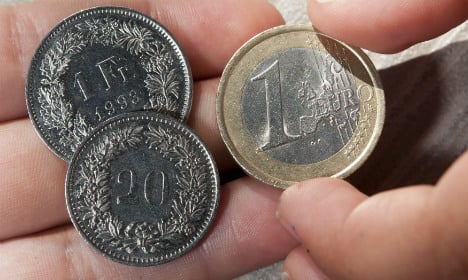Taking out loans in Switzerland seemed like a safe bet not long ago: with low interest rates, a stable currency and less money required upfront to get a loan, it made sense for local governments to get money from Swiss banks to fund their budget gaps.
That's what many cities did, especially in the Ruhr area in western Germany along the Swiss border, racking up billions in CHF debt along the way.
The scheme's weakness was exposed when the Swiss National Bank made an unannounced move to let the Franc trade freely, as opposed to controlling its value against the euro by printing money to buy foreign currency.
Essen, for example, has seen its city-held debt suddenly soar by €70 million since the CHF shot up last week.
"It's a catastrophe," Essen treasurer Lars Martin Klieve told the Süddeutsche Zeitung on Monday.
According the paper, Essen holds around CHF450 million in debt. Before last week, it would have cost the city €374.3 million to pay off. After the rise of the Franc, the debt's value is €450 million.
At the time the loan was made, the debt was only worth €290 million.
Essen isn't the only city scrambling. Neighbouring Bochum also holds around €220 million in debts. Other communities too.
All told, experts estimated that German public debt has increased by €2 billion due to what is being called Francogeddon.
Germany's biggest bank, Deutsche Bank, was also hit, losing a reported €130 million in the Swiss change of policy.




 Please whitelist us to continue reading.
Please whitelist us to continue reading.
Member comments